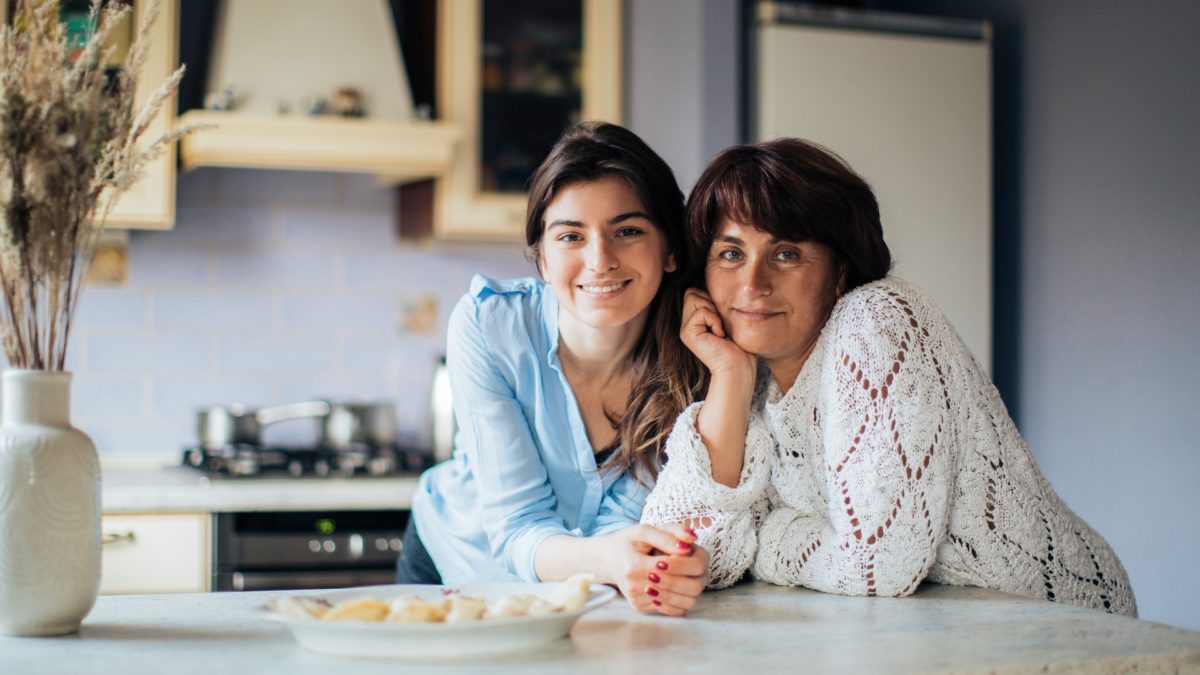“I could see how a parent putting some other passion or ambition first might cause resentment; I hadn’t realised that making a child their whole reason for being might be just as fraught,” Emma Wilkins wrote in a recent Facebook post for the Centre for Public Christianity.
In the post, Emma reflects on the memoir When it Rains, by author Maggie MacKellar, where she recalls her mother telling a friend that she felt she’d given her kids everything they needed to make their way through life.
“Everything, that is, except the ability to cope with her death,” Maggie wrote. “I stood listening to her talking. As always, it irritated me that she’d made this—us—her life’s work; had sacrificed herself so completely for her children.”
It’s a notion that surprised Emma, who writes, “To be fair, [parenting] is not an easy gig. You devote yourself to another’s wellbeing, you place them at the centre of your life, only to have them fly (or flee) the nest, and live a life that—if you’ve done your job right—won’t centre around you.
“We expect our parents to love us unconditionally and self-sacrificially, but do we want to be their life’s work? To spend our adult lives weighed down by a debt we can’t repay, expectations we can’t meet, a sacrifice we are not worthy of?
“My father died when I was young and my mother was devoted to us kids. But I never felt pressure to be her reason for being. You see, she already had one. It didn’t take her love and attention from me—if anything it made her more loving and attentive. The object of her worship, the centre of her life, was never me. But it wasn’t something lesser, it was Someone greater: [God].”
How to have a life outside kids

While the notion of losing yourself to motherhood sounds like a noble one, it’s crucial to continue to maintain your own identity after you’ve had kids. Sure, that identity may change as you take on the (new) “mother” label, but you should still be you. If anything, the reason for not simply being “just mum who wakes up, looks after the kids, puts the kids to bed, goes to bed” is to be a positive role model for our children. For our daughters, it gives them permission to pursue other interests outside of motherhood. For our sons, it teaches them to respect women as equal.
As Rachel Bertsche shared in her New York Times article, “When Your Name Becomes ‘Mom,’ Do Your Other Identities Matter?“, losing our identities is a common parenting problem and one in which many regret.
“In conducting research for my new book, I heard over and over from parents that they want to reconnect with their old selves, and they want to feel fulfilled, but they barely know how,” Rachel wrote.
Want a life outside of your kids? Want to retain who you are? Here are some tips:
1. Make time
It may sound impossible because not only do we celebrate being busy as a society, being a mum is almost always synonymous with not having enough time. But we make time for what’s important to us (our children) so perhaps it’s time to prioritise you and your interests. It doesn’t have to be hours on end, even 10 minutes a day works.
2. Learn something new
It’s not just great for keeping our minds active and holding off dementia, learning something new means you’ll actually have a new skill or hobby (or obsession) to focus on. Of course, you’ll need to master tip #1 above first.
3. Remember your partner
They’re the one you’ll be stuck with after your kids fly the nest, so it may be worth maintaining a relationship with them. Beg, borrow or steal a babysitter and go on a date night. Find an excuse to romance your partner. You’re a “wife” just as much as you’re a “mum”.
4. The same applies for your friends
If you’re lucky enough, your circle of friends are in the same life stage as you are, raising children of similar age as yours. Take advantage of the many playdate opportunities, not only for your children to bond, but for you to maintain your friendships. However, if your friends haven’t quite started their own families yet or have already been there and done that, make an effort to stay in contact. It may not be as often as before, but don’t cut them out of your lives completely. Real friends will be there for you and you’ll always be able to find something to connect over.
If for whatever reason you do find yourself isolated, find opportunities to make new friends. Online mothers’ groups, other school mums or even just random mums in the playground are all potential BFFs in the making.
How helpful was this article?
Click on a star to rate it!
1.5 / 5. 2
Be the first to rate this post!
Melody Tan
Related posts
Subscribe
Receive personalised articles from experts and wellness inspiration weekly!


